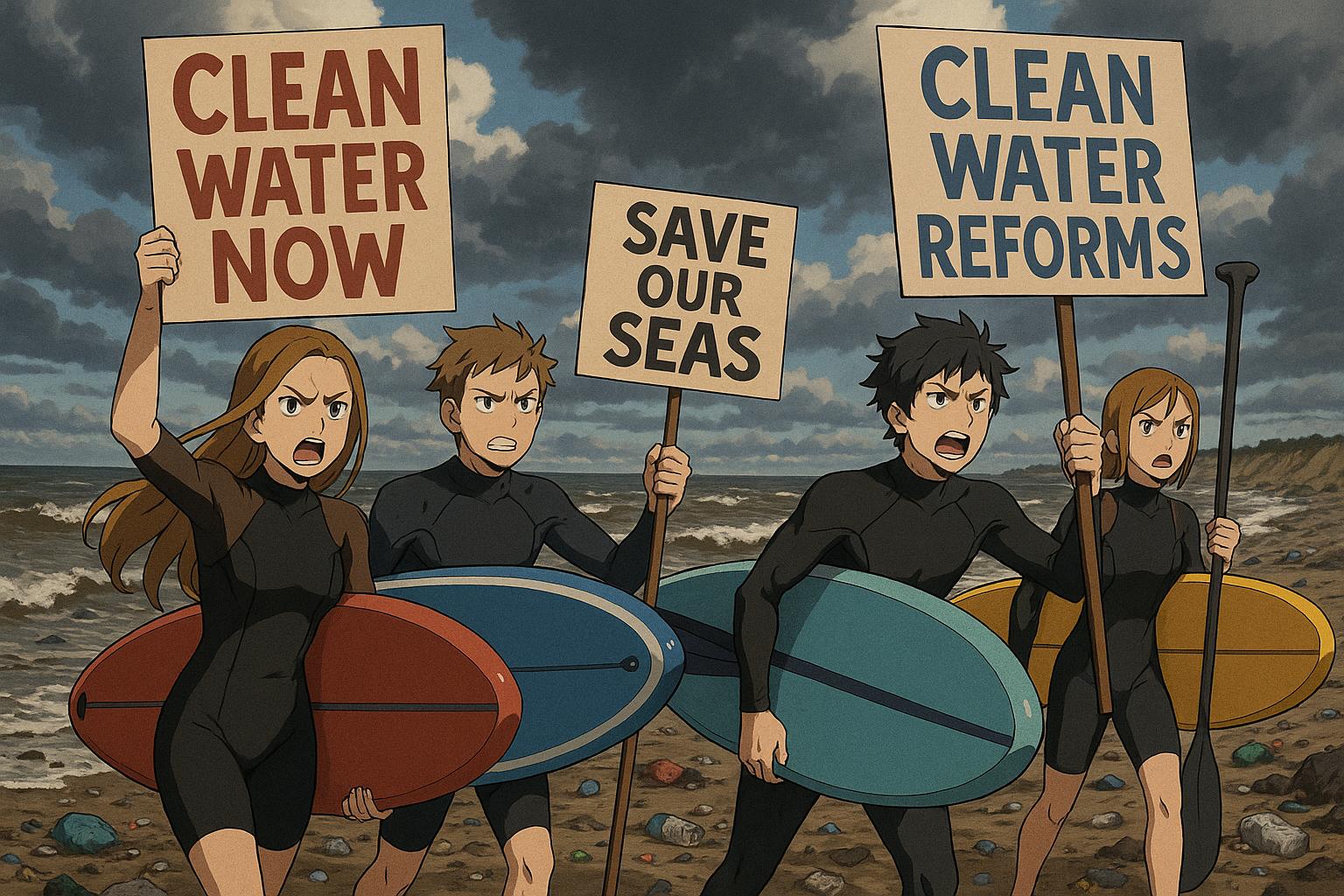Thousands of individuals gathered across more than 40 sites in the UK, from beaches to rivers, to express their outrage over the ongoing sewage pollution crisis. Organised by the campaign group Surfers Against Sewage (SAS), these “paddle out” protests featured participants wielding boards and banners, demanding urgent reform of the beleaguered water industry. This public outcry reflects widespread concern over the quality of water where many typically swim and surf, juxtaposed against alarming statistics and governmental inadequacies.
Recent polling by Opinium reveals that fewer than one in five people feel confident about swimming safely at their local bathing areas by 2030, underscoring a profound lack of faith in the government's ability to manage water quality effectively. With more than half a million sewage discharges reported in 2024 alone, public trust has waned significantly; only 21 per cent of respondents stated they believe the government will take adequate measures to mitigate these risks.
The urgency of reform is highlighted by stark data released by the Environment Agency, which indicated a record number of raw sewage discharges into England's rivers and seas last year. This trend is corroborated by SAS’s findings, showing a 30% increase in pollution incidents from the previous year. The severity of the situation has prompted discussions about the Independent Water Commission's ongoing review of the evidence, which is expected to influence future government recommendations.
Stuart Davies, one of the protest organisers in Brighton, articulated the frustrations of many participants: “We are paddling out because we seem to be in the same place each year. We see record levels of sewage pollution in our blue spaces.” He also emphasised the personal stakes involved, admitting that his work with the Wave Project—a surf therapy initiative for young people—had been repeatedly hindered by water quality concerns.
The protests come against the backdrop of significant findings from SAS, which reported that more than 600,000 discharges of raw sewage occurred in 2023. Alarmingly, 75% of UK rivers now present serious health risks, with areas designated for swimming suffering from unsanitary bacteria levels, including E. coli. These findings further amplify the calls for a drastic 90% reduction in sewage discharges by 2030, a reform the organisation insists is necessary to protect public health and preserve natural environments.
The Independent has recently contributed £20,000 to support SAS’s campaigns, acknowledging the growing number of beauty spots deemed unsafe for swimming, which has doubled within a year. Now, 37 of England's 451 protected bathing spots carry the lowest rating due to unsafe pollution levels.
Surfers Against Sewage emphasises that these protests are not merely about raising awareness, but are part of a broader campaign to influence political and corporate accountability. By galvanising local communities through collective action, they aim to ensure that water companies take responsibility for their environmental impact and invest in essential infrastructure to resolve the crisis.
As the paddle out protests continue to capture public attention, the resurgence of community activism against sewage pollution signals a determined push for lasting reforms in the UK's water industry, showcasing public will in the face of governmental inertia.
Reference Map
- Paragraphs 1, 2, 3, 4, 5, 6.
- Paragraphs 1, 3, 5.
- Paragraph 2, 4, 5.
- Paragraphs 4, 5.
- Paragraph 6.
- Paragraph 1, 6.
- Paragraph 5.
Source: Noah Wire Services
